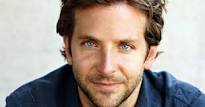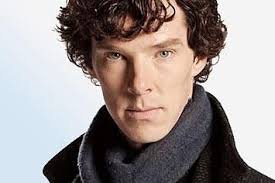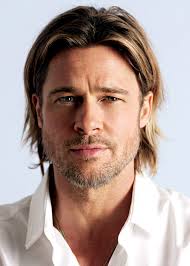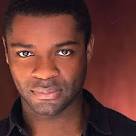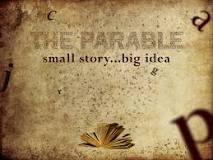What do these actors have in common? Ok, all of them are incredibly handsome thanks to the photographer who edited these “manly-men” into stardom. No one really knows what they look like as real people who get up on the wrong side of the bed or have a bad hair day, no one can envision them while spitting in the sink or going a few days without a shower. Oh and we speculate, believe me. But, in the end they stay iconic on the screen for us to project all our ideas of “what a real man is anyway”? Until this last film year. The story has changed.
This past year something happened. It is part of a bigger gender shift. A bigger shift of the heart. The stereotype of the man who saves the day, the hero that we worship, the protector, the provider, the man who is Knight, King, Hero, or the Lover began to crack under the weight of it all. (not in Marvel Comic movies but we want it that way) Not only did these actors each jump over a cliff and become a broken version of any one of these male stereotypes during this last year in film, but they showed that underneath the roles, the expectations and the demands for what a man should be, is a human being carrying a different kind of weight: Psychological scars, forgotten emotions, a guarded heart and soul pain. These actors are the caricatures of a global “coming out” of sorts. Portraits of men in turmoil, suffering, pain and loss, having carried the crippling stereotypes for centuries. These warriors, businessmen, fighters, heroes, fathers, sons, husbands, soldiers and leaders each reveal a story that is rewriting itself.
Although the movie “Unbroken” did not win any awards or even a nod at the Golden Globes, the title alone could be why. The movies that have made a mark in film this year, have catapulted these male stars into a kind of acting that sets them apart, is expressly because all their amazing performances are about being… broken.
This is how film is perched on the edge of our changing collective consciousness and takes big bold brush strokes and paints a global picture for us to use as a mirror: Namely, that men are waking up, falling apart and choosing to break out of the stereotypes for the male gender that is in the process of being deconstructed all over the world. Men are breaking down and trying to remember who they really are. We have leaned on “new models” for men through the gay debate, with pacifists, the younger generation, the metro-sexual revolution, through the alternative approaches to relationships in general in order to anchor the changes that are afoot.
We see the emergence of new ways of being for men in all these examples, but it has not been till now that the mainstream “John Wayne’s” of this world began to break out of their box which was made by society for the good of society. Well that was the thought anyway. But now we are seeing that all those “manly men” around the world are coming out of the closet of their own denial, their own hardships, their own illusions, having fought the good fight or towed the line and now we are hearing the other side of their story which in many cases is full of sadness, tragedy and fear. We all need to listen. And there is nothing more life changing than seeing all these themes projected onto an IMAX screen. There is no running away.
The movies that have sparked this conversation and truly cranked up the quality of movie going a bunch of notches are listed below. In my opinion, everyone should see them all.
Foxcatcher: Steve Carell is a man so stripped of his own identity and carrying the identity of the entire Du Pont family that he is lost under a blanket of family power and limitless money but without a conscience which has created a mental instability that ultimately end in tragedy. John Du Pont played by Carell, has it all and nothing at all.
Foxcatcher: Channing Tatum who has always been a pretty boy in movies is a wrestler that has no sense of who he is apart from the sport he plays. He is so out of touch with his own talent and his own skills that he wanders between one authority figure and another just trying to do the right thing, but with no voice of his own. His brother, played by Mark Ruffalo, struggles to keep his brother on track as his coach, tries to have a work life and a be a good father and husband and yet is seduced by money which ultimately will be the death of his ideals.
American Sniper with Bradley Cooper is heartbreaking as we watch a loving man buy into becoming the soldier and going four tours to Iraq since he wanted to be patriotic. He kills over 160 men women and children as a sniper and loses his soul. The ravages of PTSD and the lost ability to have emotions or feel at home even when back in the good ole US of A is what he earns by becoming a killing machine for his country.
Birdman with Michael Keaton is a painful portrait of a man’s lost identity, his failing life, his crippled relationships as he tries one more time to be relevant, important, talented and famous and simply figure out who he is. One of the very best movies of the year.
Nightcrawler is the most efficient portrait of a sociopath played by Jake Gyllenhaal who only wants to be “important in life” and who will go to any length to achieve this. His portrayal of a damaged man “faking his life” and feeding off the misery of others untill he gets what he wants at any cost, is nothing short of brilliant and a little terrifying since he is very much like most of the leaders in our country.
Fury is all about war and the soul. Brad Pitt and the amazing Shia Lebeouf reveal the underbelly of the warrior and war itself. Shattered, spiritually destitute these men try doing their job and holding onto even a little humanity along the way. They do not succeed. This is all about the wounded soldier. as is American Sniper. This is the single largest archetypal wound for men in our culture.
The Imitation Game is riveting and true. But the character played by Benedict Cumberbatch is all about being a “different sort of man”, oddly out of sorts with society, a genius who was responsible for turning the tide of WWII and finding that there was no place for him in the world post war.
Selma is a look at the deep internal struggle for Martin Luther King played by David Oyelowo who did a five-star performance in a five-star movie and brought three days in the 60’s back into our consciousness, since we are still fighting the fight for freedom in a hundred ways every day in our world.
So for the women who have always wanted a man who could reveal his emotions, who would stand for justice without killing, who had integrity and creative passion, who protected all of life, not just freedom, who laughs, plays, sings, dances with life, these few actors are telling a story that is all about the shift away from the stereotypical man of our culture, to the man of the future. Women have always wanted more. And it seems that now men do as well. More than ever before. I cannot wait to see what is next.
